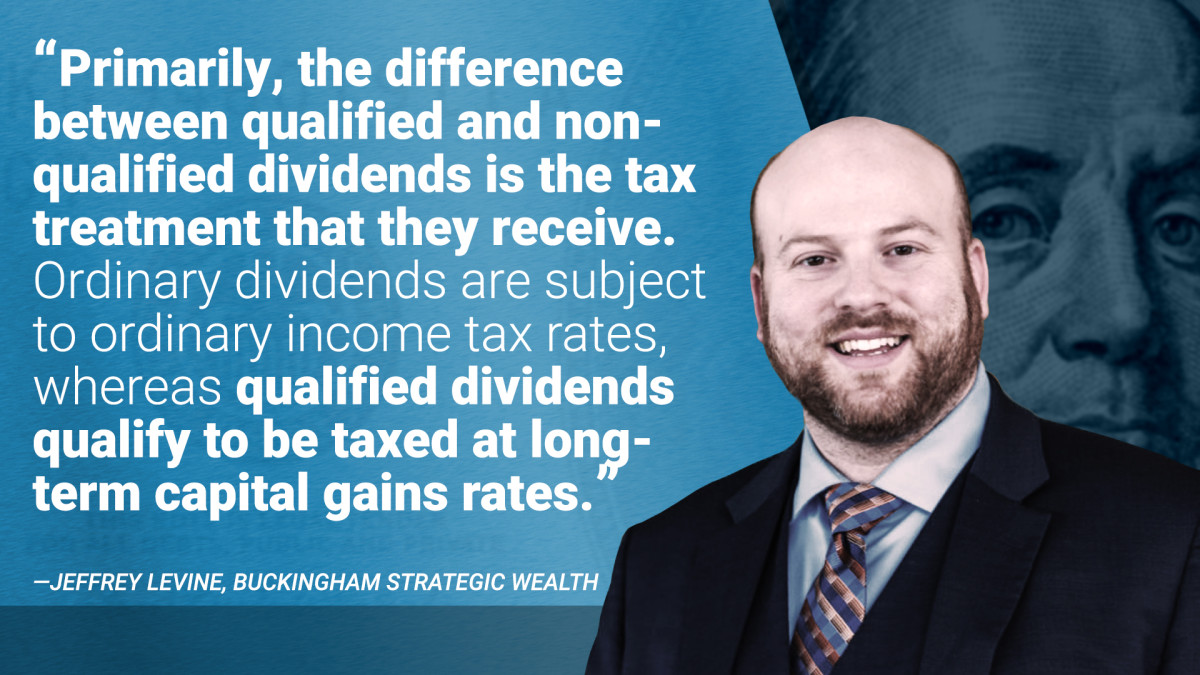What is the difference between qualified and non-qualified dividends? And which one could benefit you the most when filing your taxes?
Retirement Daily’s Robert Powell caught up with Jeffrey Levine, CPA and tax pro from Buckingham Strategic Wealth Partners, to answer the question and discuss everything you need to know about qualified and non-qualified dividends.
TurboTax Live experts look out for you. Expert help your way: get help as you go, or hand your taxes off. You can talk live to tax experts online for unlimited answers and advice OR, have a dedicated tax expert do your taxes for you, so you can be confident in your tax return. Enjoy up to an additional $20 off when you get started with TurboTax Live.
Quotes| Qualified Vs. Non-Qualified Dividends Jeffrey Levine, Chief Planning Officer, Buckingham Strategic Wealth Jeffrey Levine, Chief Planning Officer, Buckingham Strategic WealthRecommended Read: Is There a Dividend Tax? Your Guide to Taxes on Dividends
Video Transcript| Jeffrey Levine, CPA and Tax Expert, Buckingham Strategic WealthRobert Powell: What do taxpayers need to know about the difference between qualified and non-qualified dividends? Well, here to talk with us about that is Jeffrey Levine from Buckingham Strategic Wealth. Jeffrey, welcome.
Jeffrey Levine: It’s good to be with you. Any time you have a choice between qualified and non-qualified, usually, the tax code rewards you for something being qualified. And that is the case here as well. Primarily, the difference between qualified and non-qualified dividends is the tax treatment that they receive. Ordinary dividends are subject to ordinary income tax rates, whereas qualified dividends qualify to be taxed at long-term capital gains rates.
Now, one thing that’s really interesting, though, for people when they go to file their tax returns is that qualified dividends are actually included on the ordinary income line of the tax return, and then also on the qualified dividend line.
Robert Powell: Right, and the place that someone will learn, whether it’s qualified or non-qualified is the form?
Jeffrey Levine: 1099-DIV, you will get that from your custodian. And oftentimes, the custodian will send what they call a consolidated 1099, which includes interest, dividends, as well as capital gains. But yep, that is the case. And only certain investments qualify to receive long-term capital gains treatment as a qualified dividend. It’s typically going to be a US company and you have to meet certain holding requirements, holding periods, in order for those dividends to be considered qualified.
Editor’s Note: The content was reviewed for tax accuracy by a TurboTax CPA expert.
Zach Faulds contributed to the writing of this article and produced the video and/or the graphics associated with it.
